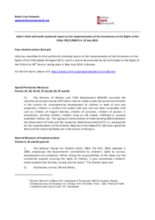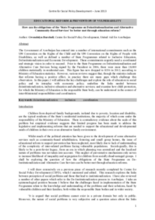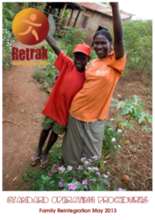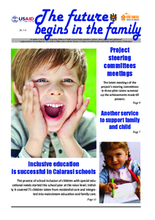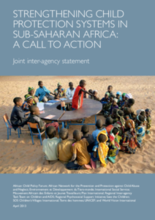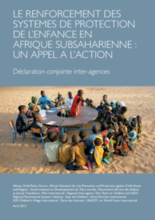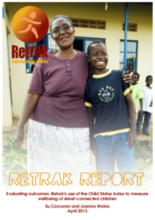Displaying 391 - 400 of 525
This study funded by Big Lottery and undertaken in partnership between the University of Bristol and Buttle UK, a grant-giving charity for vulnerable children, aims to fill gaps in understanding about the experiences of children living with kins, and in particular how children in informal kinship care view their situation.
India submitted its third and fourth combined report on the implementation of the Convention on the Rights of the Child.
This paper presents an examination of the linkages between education and the deinstitutionalization of children in Azerbaijan. The paper explores the role of education in social policy and its interplay with economic policy; underlines the links needed between deinstitutionalization, inclusive education and alternative services; and examines how child protection can be understood in the context of inter-Ministerial responsibilities and coordination.
Retrak, a UK-based organization working with street children in Africa, has published an excellent practical manual detailing its standard operating procedures (SOPs) for family reintegration for children working or living on the street. This document includes guiding principles of family reintegration, key steps, tools, monitoring and evaluation, as well as variations on the key steps of family reintegration.
This 5-minute animated video depicts a theory of change for achieving breakthrough outcomes for vulnerable children and families. It describes the need to focus on building the capabilities of caregivers and strengthening the communities that together form the environment of relationships essential to children’s lifelong learning, health, and behavior.
This issue No. 3-4 is one in a newsletter series concerning care reform in Moldova. The magazine was produced by Partnerships for Every Child (P4EC), an NGO in Moldova, with funding from the project, “Protecting children in Moldova from family separation, violence, abuse, neglect and exploitation.”
Thirteen agencies working in Africa have issued a Joint Statement calling on African governments to strengthen their child protection systems to secure the right of children to a life free from violence, abuse, exploitation and neglect in both emergency and non-emergency settings.
Cette déclaration conjointe inter-agences a pour but de (i) de présenter une vision commune des systèmes de protection de l’enfance en Afrique subsaharienne et d’expliquer pourquoi ils sont importants et méritent des investissements et (ii) lancer un appel à l’action auprès des gouvernements, à l’Union africaine, aux communautés économiques régionales, aux institutions multilatérales, aux bailleurs de fonds, au secteur privé, aux institutions académiques, aux organisations de la société civile, aux communautés et aux groupes d’enfants et de jeunes organisés.
Retrak is an organization that works with street children in Africa. This report offers an evaluation of the impact of Retrak's programs in Ethiopia and Uganda in its pilot period (2011 and 2012) and the progress of the children involved in the programs using the Child Status Index (CSI), as a measurement of child wellbeing and a tool for tracking children’s progress as they transition from the street to family homes.
This report, published by the National Society for the Prevention of Cruelty to Children (NSPCC) in the UK, highlights the need to improve outcomes for children leaving care and returning to parents or families. The NSPCC provides recommendations for policymakers and practitioners to improve the quality of assessment, planning, and preparation regarding when and if a child should be returned home from care and to increase the support for children and their families once they return to their families.

